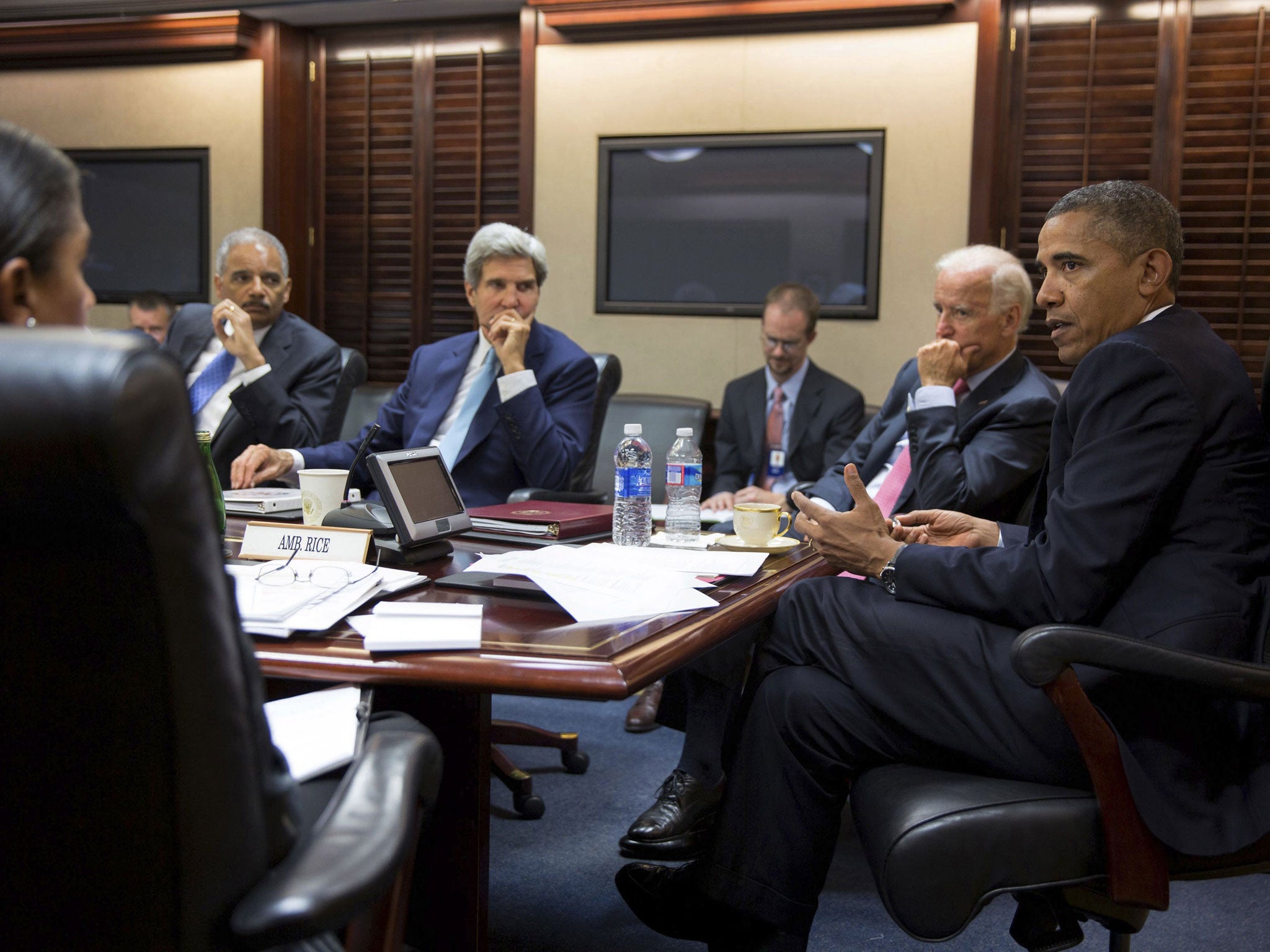Syria crisis: US has evidence that sarin gas was used in alleged attack, claims John Kerry
Obama administration says tests from emergency workers bolster case for attack

Your support helps us to tell the story
From reproductive rights to climate change to Big Tech, The Independent is on the ground when the story is developing. Whether it's investigating the financials of Elon Musk's pro-Trump PAC or producing our latest documentary, 'The A Word', which shines a light on the American women fighting for reproductive rights, we know how important it is to parse out the facts from the messaging.
At such a critical moment in US history, we need reporters on the ground. Your donation allows us to keep sending journalists to speak to both sides of the story.
The Independent is trusted by Americans across the entire political spectrum. And unlike many other quality news outlets, we choose not to lock Americans out of our reporting and analysis with paywalls. We believe quality journalism should be available to everyone, paid for by those who can afford it.
Your support makes all the difference.The Obama administration has evidence that sarin was used by Bashar al-Assad’s regime during the attack on a Damascus suburb on 21 August, which killed more than 1,400 people, the US Secretary of State, John Kerry, said on Sunday. It was the first time the US has named the chemical weapon that it accuses the Syrians of using.
The US cited new evidence as the United Nations team sent to Syria last month to investigate allegations of the use of chemical weapons prepared to send its samples to laboratories.
Mr Kerry, who said sarin had been identified in tests on samples taken from emergency workers responding to the attack, declared that the case for military action in Syria was growing “more powerful by the day”.
He told CNN’s State of the Union show on Sunday morning: “Blood and hair samples that have come to us through an appropriate chain of custody from east Damascus from first responders – it has tested positive for signatures of sarin.” In similar comments on other US networks, he said that as the evidence stacks up the administration was confident Congress would authorise the use of US force in Syria in response to the attack.
But he also reiterated Barack Obama’s assertion on Saturday that the administration had the “right” to respond no matter what Congress does, leaving open the possibility of intervention even if politicians object when they return from their summer recess on 9 September.
At the United Nations, the Secretary-General Ban Ki-moon spoke on the telephone with Dr Ake Sellstrom, the head of the UN team that returned to The Hague over the weekend after collecting samples from Syria.
The samples will be transferred to laboratories today and the Secretary-General asked Dr Sellstrom to expedite the analysis process and report the results to him as soon as possible, the UN spokesman Martin Nesirky told reporters at the international body’s headquarters in New York. He also disclosed that two Syrian officials were observing the process, as per the guidelines followed by the UN team.
Asked when the results might be available, Mr Nesirky said: “We are not giving a timeline.”
The UN did, however, assert that its inspection team was “uniquely capable of establishing in an impartial and credible manner” the substance of claims regarding the use of chemical weapons in Syria.
Earlier, the focus shifted from the possibility of an imminent US military strike on Syria to the provenance and credibility of the evidence on chemical weapons when Mr Obama said he would seek Congressional approval for any action.
While the Senate is expected to back an attack on Mr Assad’s regime, uncertainty remains about the stance of the Republican-controlled House of Representatives.
As his administration works to shore up support in Washington, Mr Obama will later this week come face to face with one of the chief international opponents of intervention: the Russian President, Vladimir Putin, a key backer of the Assad regime. Both leaders will be in attendance at the G-20 heads of government meeting in St Petersburg on Thursday and Friday.
While Mr Obama has publicly chided Russia for blocking the UN Security Council from acting on Syria, Mr Putin has questioned the wisdom of intervention, saying this weekend: “We need to remember what’s happened in the last decade, the number of times the United States has initiated armed conflicts in various parts of the world. Has it solved a single problem?”
Join our commenting forum
Join thought-provoking conversations, follow other Independent readers and see their replies
Comments